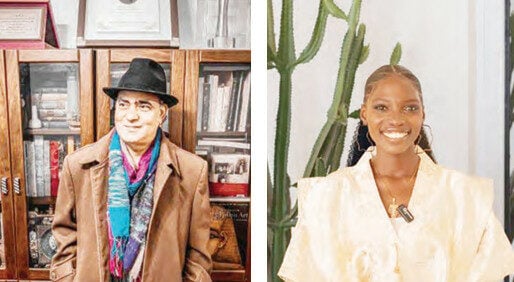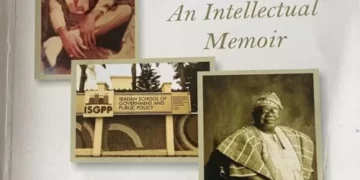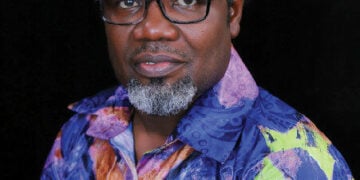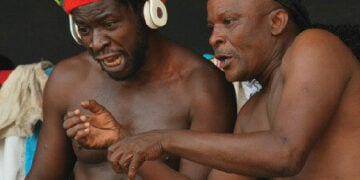Nigerian playwright, Esther Adelana, featured at the Three Continents Creative Meeting, a maiden intercontinental translation literature festival organised by Silk Road Literature Series.
Adelana joins five other writers – Hemant Divate (India), Cao Shui (China), Inna Natcharova (Russia), Mexosh Abdullah (Azerbaijan) and Miao-yi Tu (Taiwan), whose plays were translated from English to Arabic language by the founder of Silk Road Literature Series, Mr Ashraf Aboul-Yazid.
The translation of Adelana’s play ‘Ìbálé: The Broken Pot’ marks a first time in decades that the work of a Yoruba Nigerian is translated into Arabic, signalling a meeting point between Arabic and African culture.
On the criteria for selecting the authors and works featured at the festival, Aboul-Yazid said he was guided by the humanistic depth of the literary works’ content and their ability to resonate with both global and Arab cultures.
With Adelana’s play, he said, “I was astonished by the almost-identical marriage customs of the Yorubas with Egyptian rural traditions – such as the public confirmation of the bride’s virginity and the announcement of consummation.
“Equally striking is the use of myth in these practices, which transcends languages and cultural boundaries. This parallel demonstrates a strong local resonance in Egypt with an African theatrical text from Nigeria,” he said.
While this is the first Nigerian literature translated by Aboul-Yazid, it will certainly not be the last, as he noted plans were underway via his relations and recent election as the vice president, North Africa of the Pan African Writers Association (PAWA). Through the association, the author and translator launched an initiative to translate African literature into Arabic, and expect nominations from Nigerian and West African members of the association to translate more Nigerian literature into Arabic language.
And to think this was and still is an individual effort on the part of Aboul-Yazid, whose love for translation literature started in his university days as a student of English Literature.
“I recall my first attempts with the poems of W.H. Auden, Wordsworth, and Shakespeare’s sonnets. That journey led me to world literature in English, and after graduation, I translated Chinese poetry from English, as well as the works of the Greek poetess, Sappho,” he said.
However, it wasn’t until 2016 that he launched the Silk Road Literature Series, which focused on the translation of non-European literature from Africa and Asia. Hence, the festival’s title Three Continents Creative Meeting.
While this first edition features literary authors whose works he has translated (from English to Arabic), he has published works from authors and other translators in his Silk Road Literature Series and the Silk Road Poetry Anthologies.
“You could describe the Silk Road Literature Series as a personal passion that began with an actual journey across the Silk Road countries, of which I visited 37 countries. The Library of Alexandria, Egypt, published my encyclopedia ‘The Silk Road’ in Arabic.
While he is open to external funding to widen the distribution and readership of translated texts, his role as a cultural activist and an ‘organic intellectual’—who rose to a professional standing from a social class that does not produce intellectuals and remains connected with that class—ensures that the choice of authors and works translated is devoid of any political influence, indoctrination, or nuances.
“I do this voluntarily, offering the books free in digital form or at symbolic prices via print on demand. Today, these works circulate digitally and in print across continents,” he said.
On the importance of translation literature, Aboul-Yazid says, “Translation is a human and civilizational act. Perhaps African governments can see it as a means to strengthen the unity of the people (and the continent).”
The Arabic translations of featured authors: ‘The Epic of Eurasia’ by Cao Shui, ‘I Cleopatra’ by Inna Natcharova, ‘A Depressingly Monotonous Landscape’ by Hemant Divate, ‘They Are the Daughters of Siraya’ by Miao-yi Tu, ‘The Sixth Floor’ by Mexosh Abdullah and Esther Adewale’s ‘Ìbálé: The Broken Pot’ were publicly launched at the virtual festival on September 3, 2025.





